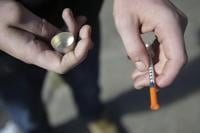Some vaccines approved for use during the COVID-19 pandemic in Canada are messenger ribonucleic acid, or mRNA, vaccines. Some social media posts claim the mRNA vaccines destroy the immune system and cause aggressive cancers. This is false. There is no evidence to link mRNA vaccines to cancer and many health authorities recommend people with cancer stay up to date on doses because they have a higher chance of severe symptoms if they get COVID-19.
Some are claiming COVID-19 mRNA vaccines have caused a surge in aggressive cancers such as leukemias and lymphomas that users are calling "turbo cancers." Many social media users sharing similar claims to a video titled "Sudden Death + Turbo Cancer: Canadian Doctors Speak Out." At the time of publication, one by William Makis, who was featured in the video, had more than 42,800 views and 1,000 retweets.
Rating: False
“There is no evidence whatsoever to link RNA vaccines and cancer," said John Lewis, the Bird Dogs Chair in Translational Oncology at the University of Alberta who .
Messenger ribonucleic acid — mRNA — is a molecule that provides cells with instructions for making proteins.
The mRNA vaccines don't use live virus to trigger an immune response, the says. Instead, they teach cells how to make a protein that will trigger an immune response.
"It’s basically showing your immune system a wanted poster of something you want it to be aware of and attack," Lewis explained.
Claims take advantage of complicated science
Angela Rasmussen, a virologist at the Vaccine and Infectious Disease Organization at the University of Saskatchewan, said the social media posts take advantage of complicated science to spread false information. The claims in the posts don't make sense, she added.
"The types of cancer they are talking about are immune system cancers so I don’t see how it can destroy immune cells while simultaneously causing them to become malignant," Rasmussen said.
"I think this is a lot for the average person to unpack."
Tania Watts, an immunology professor at the University of Toronto, said scientific knowledge about infections and vaccinations helps dispel the cancer claims.
When viruses infect people they get into cells, which act like factories spewing out thousands more copies of that virus, she said. Part of that virus is its RNA.
When developing vaccines, scientists find a segment of the virus' RNA and encode the spike protein. Through the vaccine, the harmless spike protein is taken up by cells into a person's immune system so the system knows to start making antibodiesto help fight infection if the COVID-19 virus enters the body.
The vaccine-generated spike proteins don't last long in the body, , the immune system quickly identifies, attacks and destroys them.
Watts said it does not leave a permanent record in a person's genes.
"The idea that it would cause cancer, I just can’t conceive of the mechanism," Watts added.
Rasmussen said mRNA is actually so "non-toxic that we would die without it."
"It's literally how our genes that encode the information that basically tells our cells how to work and how our bodies are put together, it's how that information is turned into reality," Rasmussen said.
Many health authorities recommend people with cancer stay up to date on doses .
In fact, Rasmussen added, an .
Misinterpreted study pushing misinformation
Many of the claims are linked to a video, published in November 2022, titled "" and posts from the panelists involved. The hour-long video was put online by the Children's Health Defense, an anti-vaccine group that was .
The video features and , two physicians from British Columbia who have faced investigations and suspensions from the governing body for doctors in that province.
The guest panellist in the video is William Makis. According to his , Makis has worked at since April 2023 as the chief of nuclear medicine and oncology. The company sells supplements and wellness products and says it stands up for "medical freedom." Makis's .
Makis regularly posts on social media about vaccines being linked to sudden death, cancer and injury.
The link between vaccines and cancer often comes from a . The , which conducted the study, says the results have been misinterpreted.
Lewis said it is a "crazy leap" to link mRNA vaccines to cancer due to this study.
"It is absolutely ludicrous.”
Sources
Claims can be found on Twitter (), () and ()
Video titled " (, from )
()
()
()
()
()
() ()
()
()
()
()
()
()
About Canadian Press fact checks
You can find out more about ������ϲʹ������� here. To reach our fact-checking team with any tips, corrections or comments, please email us at cpfactcheck@thecanadianpress.com.






































